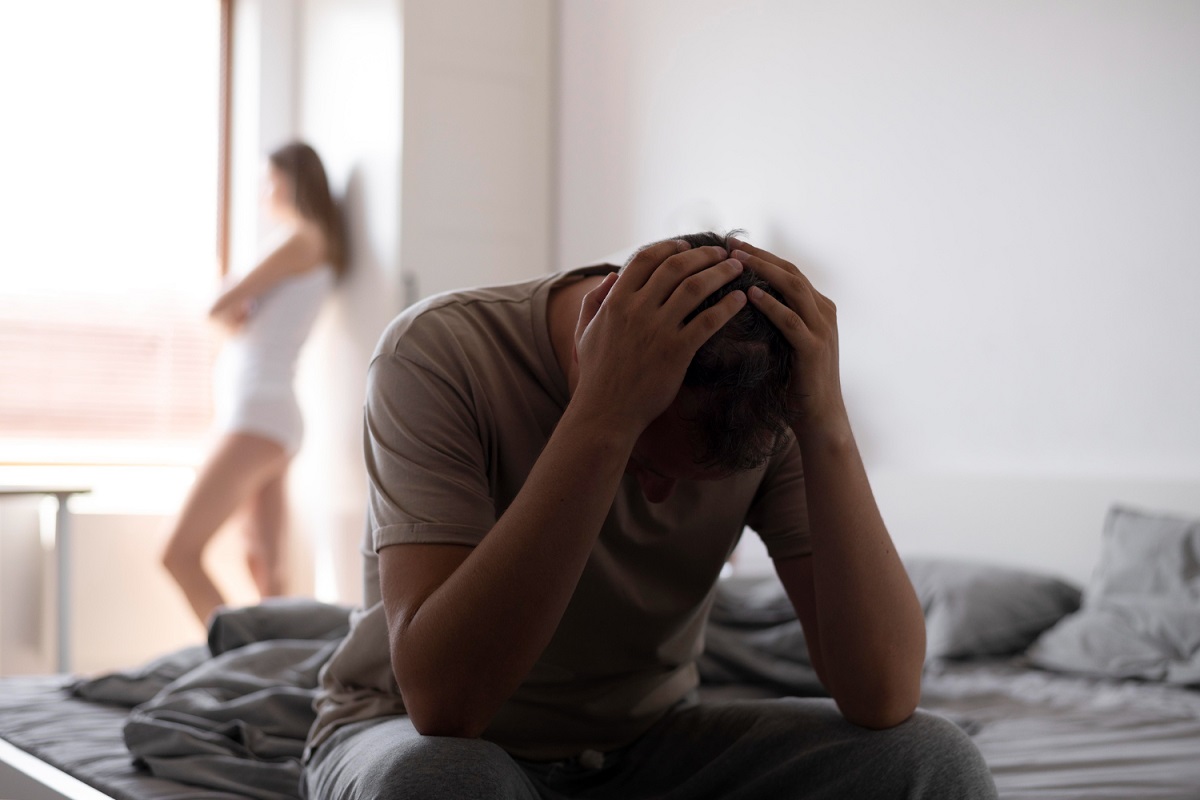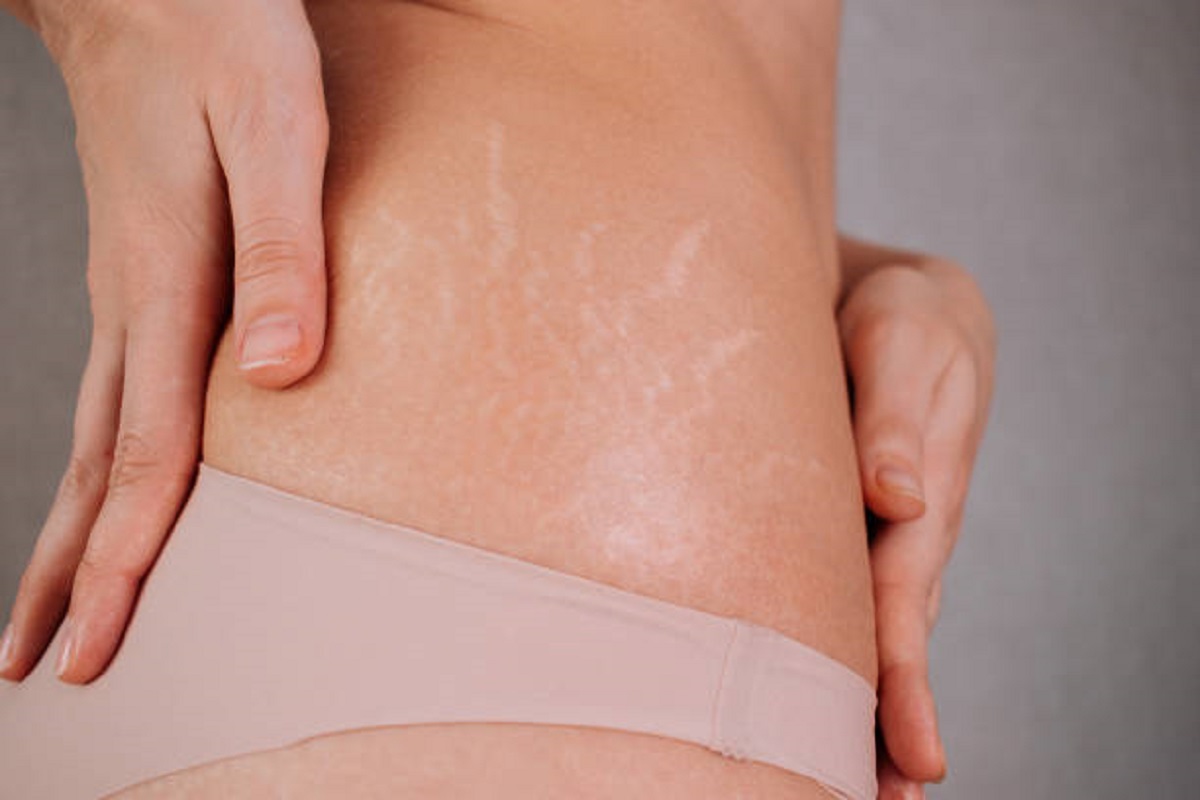Impotence – Image source: Freepik
If you’re feeling powerless, you’re not alone. Impotence is a frequent issue that is caused by different factors like physical as well as psychological. If you’re suffering from infertility, be aware that you can enhance your situation. This post looks at a few of the common causes of impotence as well as some tips to help you overcome the issues.
Overview
Impotence, which is medically known by the name erectile disorder (ED) is an illness that causes being unable to attain or sustain an erection that is sufficient to have sexual relations. The issue is prevalent and affects women of all ages however its prevalence increases with years of age. Although occasional difficulties in achieving an erection are considered to be normal, ongoing issues could indicate a health problem that needs to be addressed.
Many factors can contribute to the impotence including psychological, physical, and even lifestyle aspects. Conditions that are chronic like diabetes or cardiovascular disease, as well as hormone imbalances, may contribute to the problem in the development of ED, along with psychological issues such as anxiety, stress, or depression. The choices you make in life, such as drinking alcohol, smoking cigarettes, and a lack of exercise can also cause the development of ED.
Getting advice from a professional is essential in addressing the issue of impotence successfully. Health professionals can identify the cause of the issue, recommend suitable treatment options, and offer advice regarding lifestyle adjustments. The timely treatment not only assists in tackling ED but can also help identify and address any issues with health. Communication with health professionals is vital for people suffering from infertility, and fostering a cooperative method of restoring the sexual health and well-being of all.
Types of Impotence
Impotence, which is also known by the name erectile disorder (ED) is a medical condition. It is marked by the inability to attain or keep an erection strong enough to allow sexual activities. Impotence is caused by a variety of causes. Be classified broadly into two broad groups: psychogenic and organic impotence.
1. Psychogenic Impotence
Definition: Psychogenic impotence is mostly attributed to psychological issues that affect sexual functions.
Causes:
- Anxiety The high levels of anxiety may interfere with the relaxation required for the process of erection.
- Depression Disorders of the mind can cause a decrease in enthusiasm for sexual activity.
- Stress The excess stress of life can alter the hormonal balance. And also neurotransmitters that are involved in the process of erection.
- Relationship issues: Strained relationships or unresolved conflicts could affect sexual performance.
- Previous Sexual Trauma Past traumas can cause psychological obstacles during sexual interactions.
Therapy: Addressing the underlying emotional issues by counseling, therapy or similar mental health treatments is a good way to treat psychological impotence.
2. Organic Impotence
Defined: Organic impotence is triggered by physical causes that affect the physiological aspect of sexual activity.
Causes:
- Hormonal imbalances: Hormone levels that are not in balance particularly testosterone can cause erectile dysfunction.
- Medical Conditions: Some medications, for example, certain antidepressants. And also blood pressure medication can be associated with side effects that can affect sexual activity.
- Disorders: Conditions like diabetes and cardiovascular diseases may affect the flow of blood and nerves vital for erection.
- Nerve Injury: Damages or injuries to nerves involved in the erection process could lead to impotence.
- Trauma physical injuries that affect the genital or pelvic area can cause erectile dysfunction issues.
Treatment mastering physical causes, like controlling medical issues, altering medicines, or making use of hormonal therapy, for instance, could be crucial in the treatment of organic insufficiency.
Impotence is triggered by a variety of causes
Impotence, which is also known as erectile dysfunction (ED), is a medical condition that manifests itself as the inability to consistently achieve or keep an erection that is sufficient for sexual intimacy. It can be a result of various causes, including both physical and mental aspects. Knowing the causes of the condition is essential for effective identification and therapy. To this end, examining the physical reasons for impotence illuminates the complex interaction between bodily functions as well as sexual health.
The most prominent physical factor that contributes to insufficiency is the presence of cardiovascular disease. Atherosclerosis is a condition that causes arteries to narrow and toughen by the accumulation of plaques, as well as coronary artery disease that hinders blood flow to the heart. It can also hinder the flow of blood to the penis. The penis depends on a steady blood flow to ensure engorgement and sexual arousal. Any disruption within this process could result in difficulties in attaining and maintaining a sexual erection.
The metabolic disease is yet another important physical reason for impotence. The constant elevation in blood sugar levels due to the condition can cause damaged nerves. A condition that is known as diabetic neuropathy. Nerves that are essential for the beginning and maintaining of an erection could be affected in a negative way which can result in impaired sexual performance.
More On Causes Of Impotence
The hormonal imbalances that can be seen, especially testosterone deficiency, could contribute to impermanence. Testosterone is the main male sex hormone that is responsible for maintaining sexual desire and general health. Low testosterone levels may lead to a decline in the desire for sexual activities and lead to the development of erectile disorder.
Certain medicines are recognized as potential cause of impotence. Some blood pressure medications and antidepressant medication, for instance, can cause negative effects on sexual activity. Knowing the possible effects of these drugs is crucial for medical professionals to manage impotence.
Neurologic disorders are a different type of physical cause that can cause impotence. The conditions that affect the central nervous system, including the spinal cord or multiple sclerosis injuries, may disrupt the complicated signaling process that drives normal sexual activity. Communication between the brain and the organs of genital reproduction could be affected. This can cause problems in maintaining or achieving an intimate erection.
Injuries to the pelvic region prostate, or penis can directly trigger the impotence. The trauma to these locations could cause damage to nerves, blood vessels, and other vital organs that are essential for the sexual process. Repercussions from physical injuries can manifest as rapid erectile dysfunction or may develop slowly over time.
The signs and symptoms of impotence
Impotence, sometimes referred to as sexual dysfunction, is a disorder that results in the inability to attain or keep an erection that is sufficient to allow sexual intimacy. It can be caused by several root causes that are both physical and psychological. Moreover, the signs and symptoms can appear differently for different individuals. Recognizing the symptoms of impotence is essential for receiving the appropriate medical care and fixing the root of the issue.
One of the most prominent indicators of impotence can be the difficulties of maintaining or getting an intimate erection. People suffering from this issue might find it difficult to attain the ideal degree of rigidity within the penis. This can make it difficult to have a sexual encounter or completely difficult or even impossible. The difficulty could result in anxiety, stress, and negative effects on the overall health of the individual.
A decrease in sex drive or a decrease in sexual desire is a different sign of impermanence. Males may experience a decrease in desire to engage in sexual activities. And also, the desire for intimacy may diminish. A decrease in libido could result in strained relationships and stress for both parties.
The inability to get sexual intimacy isn’t a commonly mentioned symptom of impotence however it is equally troubling. Males may discover that even though they are engaged in sexual activities they are unable to achieve a climax. Impotence may cause feelings of anger as well as feelings of dissatisfaction with sexual intimacy.
More On Signs And Symptoms Of Impotence
Furthermore, people with infertility can experience less pleasure in sexual activity. Although they may be competent to participate in sexual pleasure, however, the pleasure and sensations that result from it could be reduced. A decrease in pleasure may cause a cycle of avoidance. Or inability to be involved in intimacy, which can impact general well-being.
It is vital to recognize that insufficiency can be caused by psychological and physical aspects. It can be caused by physical factors like cardiovascular disease as well as hormonal imbalances, diabetes, and neurological conditions. Mental factors, for instance, anxiety, stress, depression, or issues with relationships are also an important influence on the growth of impermanence.
It is vital to seek medical attention in those who are suffering from signs of impotence. Medical professionals can conduct an extensive examination, which includes the medical history, physical exam as well as lab tests to identify what is the underlying reason for the issue. Choices of treatment can vary depending on the underlying cause. Treatment options could include lifestyle modifications or medications, psychotherapy, or any other treatment.
Treatment for impotence
Impotence, also referred to as erectile dysfunction (ED) is a condition characterized by the inability to achieve or keep an erection that is sufficient to have sexual relations. It can be caused by many factors including both psychological and physical causes. Knowing the causes of impotence is vital for successful diagnostics and treatment. This is why examining the physical reasons for impotence helps to understand the complex interaction between bodily functions as well as sexual health.
The most prominent physical cause that contributes to insufficiency is the presence of cardiovascular disease. Atherosclerosis is a condition in which arteries narrow and become toughened by the accumulation of plaques. Or coronary artery disease that reduces blood flow to the heart. It can also hinder the flow of blood into the penis. The penis is dependent on strong blood flow to ensure engorgement and sexual arousal. Any disruption within this process could cause problems in getting or maintaining a hard erection for sexual activities.
Metabolic disease is yet another major physical factor that causes impotence. The constant elevation in blood sugar levels due to the condition can cause nerve damage, which is called diabetic neuropathy. Nerves essential to the beginning and maintaining of an erection can be affected adversely and result in a decrease in sexual performance.
More On Treatment For Impotence
Hormonal imbalances, specifically low levels of testosterone, could contribute to impotence. Testosterone – the main male sex hormone that is responsible for sustaining sexual desire and general health. It is well known that low testosterone levels may cause a decrease in interest in sexual activity. And can contribute to the occurrence of erectile problems.
Certain medicines are being investigated as possible causes of impotence. Certain antidepressants as well as blood pressure medicines, in addition, can cause side effects on sexual performance. Being aware of the potential effects of these drugs is crucial for patients as well as health professionals in managing the issue of impotence.
Other neurological disorders comprise a type of physical cause of infertility. Disorders that affect the central nervous system, like chronic sclerosis and spinal cord injury, could disrupt the complicated signaling process that drives regular sexual responses. Communication between the brain and genital organs could be seriously affected, which can cause problems in maintaining or achieving a hard erection.
Injuries to the pelvic region, penis, or prostate can directly cause impotence. The trauma to these locations could cause damage to nerves, blood vessels, or any other structure that is vital for sexual functioning. Physical injuries can manifest as rapid erectile dysfunction or may develop slowly over time. Impotence, in the end, is a complex issue with many physical reasons that can interact and exacerbate each other. Heart disease, diabetes hormone imbalances, medication or neurological issues, as well as physical traumas all play a role in the complex web of variables that affect sexual functioning. The recognition and treatment of the physical cause through thorough medical examination and customized treatment strategies is essential to the effective treatment of impotence as well as restoring an enjoyable sexual experience.
Conclusion
Due to its complex nature, impotence requires an individualized and targeted strategy to effectively treat both its physiological and psychological components. Individuals experiencing persistent erectile difficulties must recognize them as potential warning signals from greater health issues affecting overall wellness, and seek timely medical assistance as soon as they notice erectile performance issues. This allows a comprehensive strategy encompassing lifestyle modifications, medications and therapeutic interventions to be put in place as soon as possible.
Lifestyle changes that include maintaining a nutritious diet, engaging in regular physical activity, and quitting harmful habits are an integral component of managing impotence. Not only can such changes help mitigate risk factors associated with impotence but they can also benefit overall well-being. Exercise can specifically aid cardiovascular health and stress reduction; all are integral elements in supporting optimal sexual function.
PDE5 inhibitors present viable treatment solutions to many individuals dealing with impotence; however, before beginning any medication regimen it is vitally important that individuals consult healthcare providers first as knowing potential side effects and interactions is critical to an effective and safe experience.
Therapy provides effective methods of exploring psychological dimensions of impotence. Counseling and psycho-sexual interventions offer individuals a safe environment to address anxiety, depression, or any other mental health factors that contribute to sexual difficulties. Through cultivating healthier attitudes towards sexuality therapy becomes part of an integrated impotence management plan.
Conquering impotence requires an integrated combination of lifestyle changes, medical interventions, and psychological support – including lifestyle modifications, medical therapies, and psychological counseling to regain control over sexual health leading to feelings of fulfillment and satisfaction with romantic relations and overall well-being. A proactive, tailored approach not only addresses symptoms but also tackles their source – creating real strides towards improved overall well-being.











